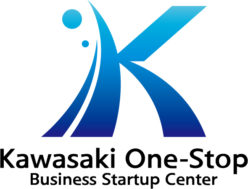
The Ministry of Justice ordinance stipulates that the salary of a foreigner employed by a company must be “equal to or higher than the remuneration of a Japanese worker.
The company can determine that wage based on ability and position, but cannot make the foreigner work for a lower wage just because he/she is a foreigner.
Explanation of the difference between contractual salary and take-home pay at the time of employment
When hiring foreign employees who are unfamiliar with Japanese labor and tax laws, problems may arise due to the difference between the amount of salary they were told at the hiring interview and the amount of take-home pay.
To prevent problems, it is necessary to provide sufficient explanation before hiring.
When a company pays salaries and bonuses, income tax, unemployment insurance premiums, employee pension insurance premiums, health insurance premiums, and long-term care insurance premiums for employees over 40 years old are deducted from the salary according to the law.
In addition, the employer need to explain that even if the employee is not taxed in the year he/she start working in Japan, from the second year he/she starts working, inhabitant tax will be deducted, further reducing his/her take-home pay.
The employer need to explain that the deduction of food, dormitory, and other expenses, if any, to be borne by the employee will also be deducted from the salary based on the labor-management agreement.
Since the amount of take-home pay will also affect the amount of rent that can be paid for the monthly rental housing, the take-home salary simulation should be presented when the offer is made.
Preventing problems before hiring is essential to creating a workplace where foreign employees can fully demonstrate their abilities.
If you need to simulate the hiring of foreign employees in advance, please consult with a labor and social security attorney.
If you have any questions or concerns, please feel free to contact us using the inquiry form.
Please contact : Contact Form
Poster
***************************************************
上岡 由美子 Yumiko Kamioka
社会保険労務士 Labor and Social Security Attorne
社会保険労務士法人マーシャル・コンサルティング
神奈川県横浜市西区北幸2-9-40 銀洋ビル8階
Kanagawa-ken, Yokohama-city, Nishi-ku, Kitasaiwai 2-9-40
Tel: 81-45-594-7315 Fax: 81-45-594-7316
E-mail: ykamioka-hr@mashr.co.jp
https://www.mashr.co.jp/english-2/
**************************************************


